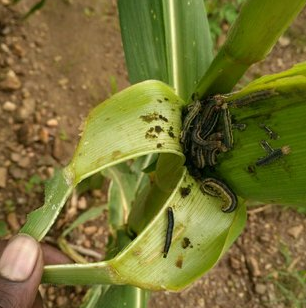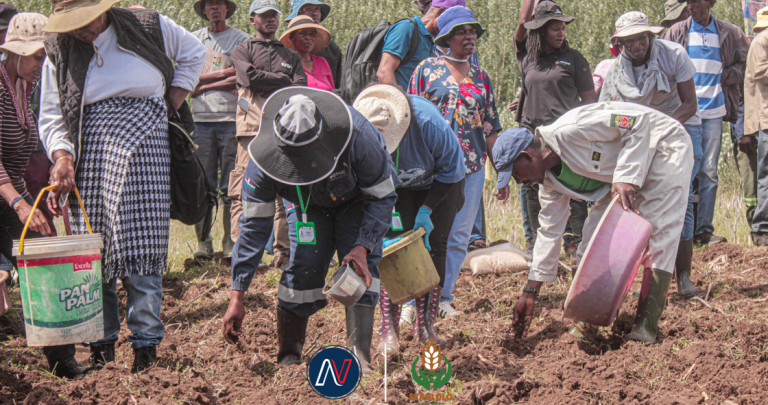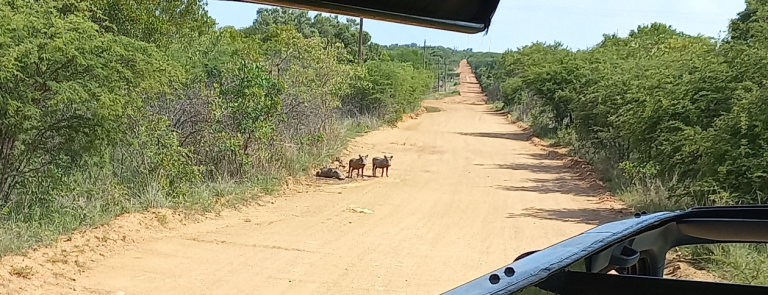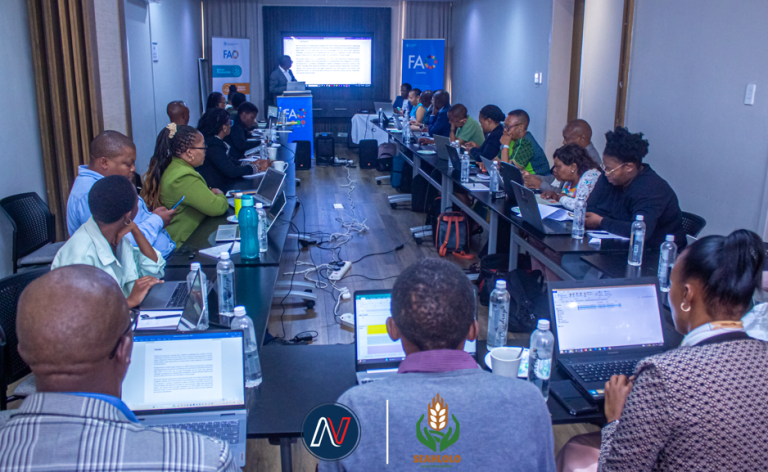
African Army Worm attacking crops.
By Seabata Mahao
In recent months, Lesotho has faced a growing threat from the African armyworm (Spodoptera exempta), a highly destructive pest that jeopardises the livelihoods of farmers and the nation’s food security.
The infestation has been particularly devastating for maize, a staple crop for many Basotho households. However, as the threat intensifies, farmers and agricultural experts are turning to modern, innovative solutions to curb the spread and mitigate the damage caused by these pests.
Understanding the Armyworm Crisis
The African armyworm is notorious for its rapid reproduction and insatiable appetite. In Lesotho, its larvae feed voraciously on maize plants, significantly impacting the agricultural sector.
Favourable weather conditions, such as warm temperatures and increased rainfall, have exacerbated outbreaks in recent years, leading to extensive crop losses and heightened concerns about food security.
Traditionally, farmers have relied on chemical pesticides to control armyworm infestations, and while sometimes effective, this approach is costly, environmentally harmful, and poses health risks to both humans and wildlife.
Recognising these limitations, Basotho farmers and agricultural experts are now embracing integrated, sustainable strategies that combine technology, biological control, and community collaboration.
Harnessing Technology for Early Detection and Response
One of the most promising advancements in combating the African armyworm is the implementation of early warning systems.
Monongoaha Pelei, an independent Agriculture and Forestry Consultant, highlights the role of satellite imagery and weather forecasting tools in predicting the occurrence and movement of armyworm outbreaks.
“These systems provide real-time updates to farmers, allowing them to take preventive action before infestations become severe,” Pelei explains.
In Lesotho, an Integrated Pest Management (IPM) program, supported by local agricultural institutions and international partners, is sending SMS alerts to farmers with information about potential outbreaks based on weather patterns.
By receiving early warnings, farmers can act swiftly, employing targeted control measures to reduce pesticide use and minimise environmental harm.
Biological Control: A Sustainable Alternative
Biological control is emerging as a crucial tool in the fight against armyworms and researchers have identified natural predators, such as parasitic wasps and nematodes, effectively regulate armyworm populations without the need for harmful chemicals.
“The government of Lesotho, in partnership with regional agricultural research institutions, is promoting the use of biocontrol agents and farmers are being trained to identify and support these natural predators in their fields. By fostering biodiversity, they can enhance their crops’ natural defences and create a more resilient farming ecosystem,” Pelei said.
Climate-Smart Agriculture and Crop Diversification
Lesotho’s mountainous terrain and unpredictable climate make it particularly vulnerable to pest outbreaks exacerbated by climate change. Climate-smart agriculture is playing a key role in modernising the country’s farming practices.
This approach focuses on improving soil health, optimising water management, and promoting the use of drought-resistant crops, all of which enhance resilience against both pests and changing weather patterns, Pelei said.
He further stressed that crop diversification is another effective strategy for mitigating armyworm damage.
The expert encourages farmers to cultivate a variety of crops—such as legumes and vegetables—rather than relying solely on maize.
“This practice not only reduces the impact of an infestation but also contributes to a more balanced and sustainable agricultural system.”
Community Collaboration and Knowledge Sharing
The fight against armyworms extends beyond modern techniques; it also relies on strong, knowledge-sharing communities.
“Basotho farmers have a long-standing tradition of exchanging farming insights, and agricultural extension services are leveraging this strength by facilitating farmer-to-farmer training sessions, so, trough cooperatives and community meetings, experienced farmers are sharing best practices on pest control, crop management, and sustainable farming methods.”
Additionally, local radio stations and social media platforms are being used to disseminate information about the ongoing outbreak and recommended control measures.
“This ensures that farmers across the country are well-informed and prepared to tackle infestations effectively.”
The Role of Collaboration: Farmers, Experts, and NGOs
Pelei indicates that a multi-stakeholder approach is proving to be instrumental in controlling the spread of armyworms.
“Various agencies, including NGOs and government bodies, are working together to provide farmers with access to pest-resistant seeds, training programs, and financial assistance to recover from pest-related losses.
“As Lesotho faces the persistent threat of the African armyworm, modernised farming techniques and collaborative efforts are essential. The adoption of sustainable, science-driven solutions is crucial to protecting crops, ensuring food security, and building resilience within our agricultural sector,” he said.
A Resilient Future for Lesotho’s Farmers
By integrating early warning systems, biological control methods, climate-smart agriculture, and knowledge-sharing networks, Lesotho is taking significant steps toward a more sustainable agricultural future. While the battle against the African armyworm continues, Basotho farmers are demonstrating resilience, innovation, and adaptability.
“With the support of modern science and collective action, farmers can safeguard their crops and secure the nation’s food supply for years to come,” Pelei concludes.






